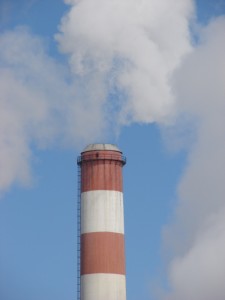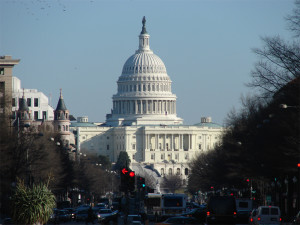Coloradans consistently reject the Environmental Protection Agency’s announced Clean Power Plan regulations across a wide range of demographic groups, political affiliations, and other measures in a recently released poll commissioned by Colorado’s free market think tank, the Independence Institute.*
Citing possible electricity rate hikes, impacts on poverty in minority communities, and the EPA’s own admissions that the new carbon regulations would deliver minute or nonexistent effects on global temperature and carbon reductions, Colorado’s registered voters were more likely to oppose the finalized rule, issued earlier in August.
The August 9-10th Magellan Strategies survey also found Coloradans giving their state high marks in environmental quality and state-based environmental regulation, pushing back against federal efforts to control the state’s environment and energy choices, saying that Washington D.C. hurt more than helped in those policy areas.
Only Democrats (64 percent) and those earning between $100-$124K per year (51 percent) were more likely to support the EPA’s Clean Power Plan even if it meant an increase in electricity bills as a result of implementing the regulations. Overall, 59 percent of Coloradans were more likely to oppose the plan, with men and women showing no gender gap and nearly identical opposition to costly rate hikes.

A National Black Chamber of Commerce study found that poverty rates in black and Hispanic communities were likely to increase significantly—23 percent and 26 percent—under the Clean Power Plan. Fifty-five percent of Colorado voters said they would be more likely to oppose the federal regulations under those circumstances, with women edging out men (57 percent to 53 percent, respectively) in opposition. Majorities of Republicans, independents, and all age and income groups offered the same negative responses when it came to impacts on minority community poverty rates, as did the respondents when viewed across all seven congressional districts.
Democrats were still more likely to support the EPA’s carbon reduction plan by a slim 42 to 37 percent margin. The party was split, however, along gender lines, with Democratic women in opposition, 44 to 36 percent. Their male party counterparts gave the Clean Power Plan a large boost, saying 48 to 27 percent that they were more likely to back the EPA’s measure despite minority community concerns.
The survey found Colorado voters giving the EPA no refuge, save for the aforementioned Democratic party support, when it came to possible global temperature reductions of 0.02 degrees Celsius promised by the federal agency. Aside from youth voters and some high earners, consistent majorities (51 percent overall) opposed the Clean Power Plan based on projected temperature changes determined by the EPA itself.
Stronger majorities (58 percent overall) were more likely to oppose the plan based on the EPA’s admission that even if fully implemented, the Clean Power Plan would have no notable impact on carbon emissions. Democrats were split, with just 45 percent saying they would be more likely to support the regulations under this scenario.
Combining electricity cost concerns and lack of “notable” impact on carbon, Coloradans viewed the Clean Power Plan even less favorably. Sixty-three percent of those surveyed would oppose the EPA, with the agency finding little demographic support. Democrats were almost evenly split, 43 to 42 percent, when considering costs and environmental impact measured in carbon emissions.
“The poll demonstrates how important are messaging and spin for the Environmental Protection Agency. According to the poll, Coloradans would reject a rule that costs much yet yields no benefits; the Clean Power Plan would impose unprecedented costs, for negligible benefits. If voters knew this, they would of course oppose the rule,” said William Yeatman, a senior fellow in environmental and energy policy for the Competitive Enterprise Institute.
The poll found near unanimity across all demographics surveyed when it came to support for an environmental compliance plan that would require the state government to consider costs before it became law, at 46 to 34 percent.
With sixteen states already considering a lawsuit against the EPA over questions of legality concerning the authority of the agency to implement carbon emissions regulations as seen in the Clean Power Plan, Colorado’s participation has yet to be determined, according to the Attorney General Cynthia Coffman’s office.
Aside from Democrats and some high earners ($100-$124K), 53 percent of Coloradans support the lawsuit’s attempt to stop implementation of the Clean Power Plan. Fifty-nine percent say the state should wait to comply with the regulations until all lawsuits against the plan are settled, with only Democrats and high earners urging the state to move forward with state implementation before all legal options are concluded.
Sixty-five percent of Colorado registered voters appeared satisfied with the state’s environmental quality, with 72 percent of men and 58 percent of women rating the state as “very good” or “excellent.” In a partisan breakdown, Republicans (82 percent) and independents and unaffiliated voters (60 percent) gave similar high marks. Democrats, however, were split; with 37 percent saying the state had only “moderate” environmental quality against a majority of Democrats (53 percent) offering praise.
Both Colorado men and women said federal regulations hurt Colorado’s environment rather than helped—54 percent and 50 percent, respectively. While Democrats resoundingly felt regulations from Washington D.C. helped (60 to 22 percent), both Republicans (72 percent) and independents (60 percent) said those regulations hurt, according to the poll. Only young voters aged 18-34 (47 to 44 percent) and wealthy voters with incomes over $100K were more likely to say federal efforts were a boon for the state’s environment.

Colorado’s own environmental regulations fared much better, with men, women, Democrats, and independents saying state environmental efforts helped rather than hurt—with 48 percent overall giving the state the thumbs up.
When rated against each other, Coloradans put their trust in the state to regulate for a clean environment. Just 5 percent said they trusted Washington D.C. to do a better job, while 37 percent said Colorado offered better environmental outcomes. Slightly more than a quarter said they trusted both state and federal regulators, and nearly 1 in 5 said neither was the option. With the exception of high income earners in the $100-$124K range, all age and socioeconomic groups favored Colorado home environmental regulation over trusting regulators at federal and state levels equally.
Conducted August 9-10th, the Magellan survey featured 730 registered Colorado voters, with 31 percent Republicans, 30 percent Democrats, and 39 percent independent/unaffiliated. The poll has a margin of error of +/- 3.63%.
*Disclosure: The author of this piece is employed by the Independence Institute.


